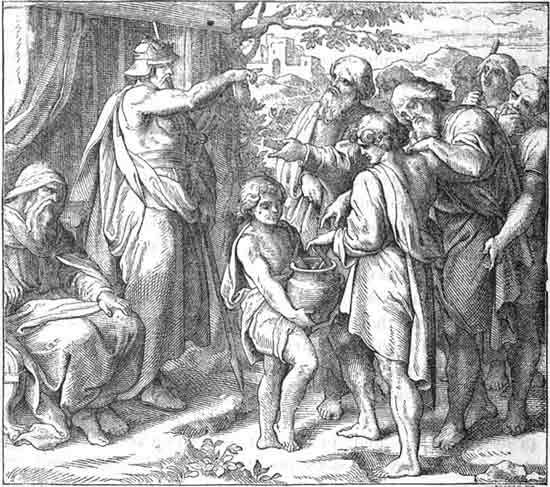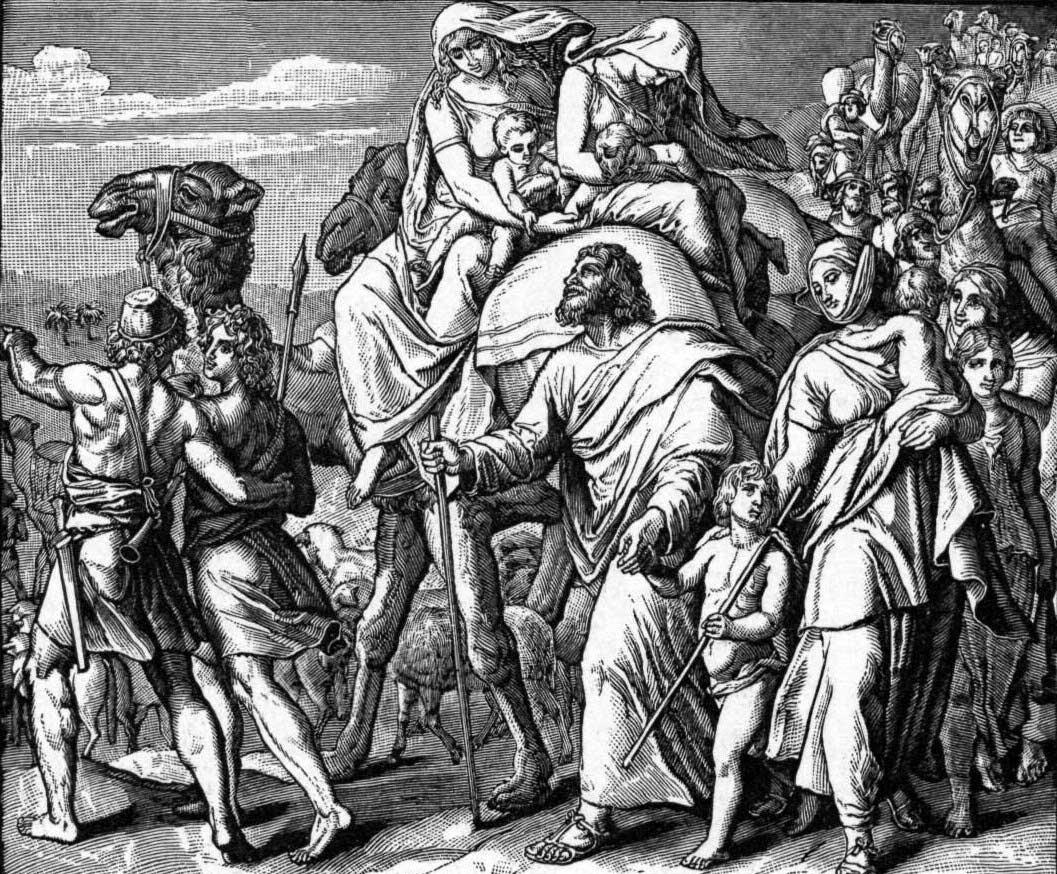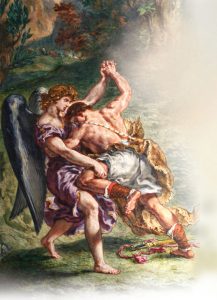
With the death of Joshua, the period ordinarily regarded as ancient, came to an end. The period that followed, (i.e. after the 13th-12th century BC), though about 3 thousand years old, is termed ‘modern’ by many scholars as it is well documented. Moreover, strong evidences to support the events that occurred in this era and later are to be found quite commonly.
Before his death, Joshua allocated the land of Canaan that he had won, to the ‘Twelve Tribes of Israel’. For the purpose, he drew lots in the presence of God, mainly to prevent injustice of any kind. Joshua believed after all, that God was definitely better aware of a person’s real needs than the person himself could have been.

Joshua also dismissed the ‘central council’ of the tribes that he led. In addition, he also disbanded the federal army of the Israelites, asked the soldiers to return to their respective tribes and ordered the tribes to raise their own respective armies.
On the face of it, all of this could seem an instance of self-destructive thought. ‘What did Joshua achieve after all? Did he not divide the power of the Israelites and make them weak? Was the absence of a central controlling authority not tantamount to a threat of anarchy among the Twelve Tribes?’ one may well ask! That Joshua, considered an excellent commander and an ardent devotee, should have opted for this kind of a decision, could come forth as quite shocking.
However, in the light of the circumstances that led to the birth of Judaism and of the history that followed, many analysts feel that Joshua’s decision was very much appropriate.
Joshua wished to create an ideal Jewish order wherein every Jew would have, at his individual level, discharged his responsibilities, living at the same time, as part of a collective whole, viz. the united Jewish society. The society of such individuals would automatically have become an ideal setup. Moreover, when is the need for a central leadership felt? It is either needed to run the affairs of a federal government comprising different regions having difference of opinion; or it is needed to jointly face an imminent external aggression.
But how at all could there have been a difference of opinion in a religion that was founded on the principle of ‘One God – one religion’? When God commanded that the religion of the Jews be created, He had Himself meticulously created and structured the Israelite beliefs such as ‘monotheism’, the ‘Sabbath’, the ‘Passover’, the ‘Ten Commandments’, the ‘Torah’ and the ‘Tabernacle’. These beliefs were equally applicable to all. Moreover, the laws and the details of the lifestyle that God had expected from the Jews were clearly mentioned in the ‘Torah’; and following these was mandatory for all the believers. This, in any case, left very little scope for internal discord among the Israelites.
Every Israelite was, as it is, to possess virtues of brotherhood and love for his fellow Israelites. Hence, any one of the Israelite regions faced the threat of external aggression, it was supposed to be considered a threat to the entire Israelite federation and all the states were expected to come together in support of the region in question.

It was falling back on the above considerations that Joshua might have arrived at the decision that devout Israelites could well do without a central leadership, so believe analysts.
After the death of Joshua and ever since the Israelites stepped out of Egypt, it was for the first time that they were without a central leadership. Moses and Joshua were not just their supreme commanders and prime leaders; they were also their best, their supreme guides and torchbearers. The Jews had, with great hope, always turned to them for the resolution of every problem and were used to their leadership and guidance. At the same time, both Moses and Joshua inspired awe in the hearts of the Israelites. But the death of Joshua was bound to change the scene.
The phase of the absence of a common central leadership then continued for about 300-odd years. The times that followed Joshua’s death did not disrupt the structure and organization that he had put in place, not immediately at least. It was not that the things not in line with the religion of Israel did not happen at all. But until the generation of mature and thinking Israelite elders, trained under Joshua was alive, the Jews did feel morally bound to virtue and to the prescriptions of the religion. These respectable elders could successfully ensure that all wrong was corrected before things went out of hand. But when this generation of Israelites was no more, the Israelites began to gradually stray from their religious fundamentals.
The Israelites were now no more accountable as such, – neither to a moral authority, nor to a political leadership nor to a military leader one nor even to any religious one. The city of Shiloh, which housed the ‘Tabernacle’, was the highest place of pilgrimage of the Israelites and one they visited at least once a year. But with the degradation of morals and values, it so happened that the Jews became unwilling and began to dilly dally over the visits to the Tabernacle. They took to the polytheistic worship of the Canaanites and in fact began to enjoy it ending up also adopting their customs and practices.
But it must be noted that during this period (in which the Israelites did not have any central leadership), whenever the Israelite society seemed to stray, to falter or was faced with external aggression, there always happened to be a man or at times even a woman among them, who rose to the situation and exhibiting bravery, valour and knowledge, tided them over the given adversity. However such instances of leadership were limited to the need of the hour. These leaders were referred to as ‘Judges’ and the period was thus called ‘the Era of the Judges’ (some also call it ‘the Period of the Judges’).
During this period of 300-odd years there were 12 such judges (a few texts talk of 15 Judges). They were – Othniel, Ehud, Shamgar, Deborah (a woman), Gideon, Tola, Jair, Jephthah, Ibzan, Elon, Abdon and Samson.
They neither followed each other in quick continuous succession nor were they related to each other. Some led the Israelites for 40 years, some for 80 years while there were also a few who led for just a year or two. Difficulties and tough times over, once a Judge led the Jews to good times, all would be well for the next few years. But with the death of the judge things would again start to go wrong and they were back to square one. Yet again, when the situation seemed to go out of control, with God’s grace, a brave one would rise from among the Israelites and lead them.
This cycle of events repeated itself for the next about 3 hundred years and some of the events went on to become milestones that shaped the history of Jews. (To be continued…)












